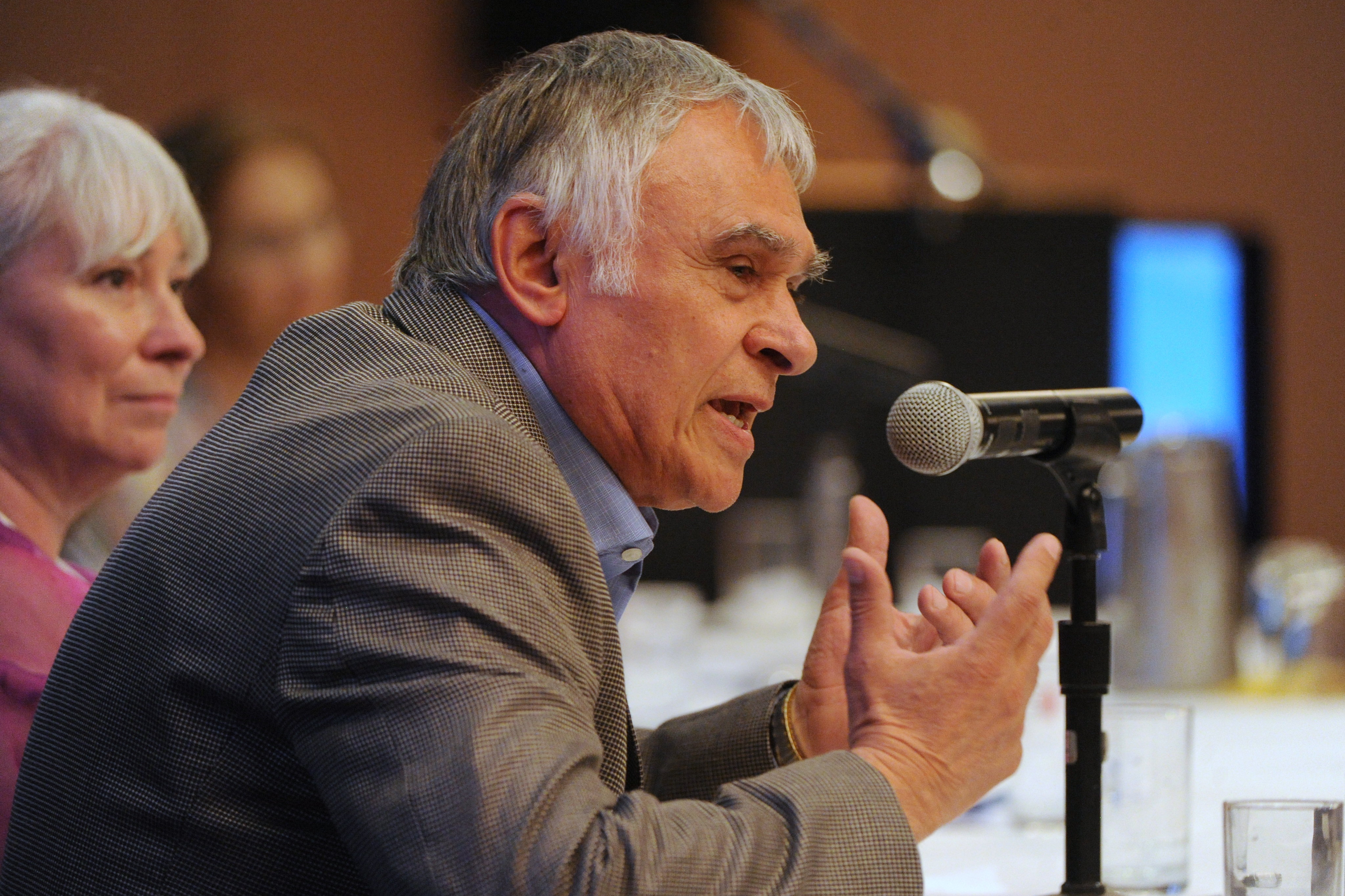Inuit group plans collaborative economic development across national boundaries
When it comes to economic development, Inuit people across the Arctic face similar challenges, including sparse populations, pockets of poverty and lack of infrastructure. They also have similar opportunities — a lot of geographic territory with rich stores of both renewable and non-renewable natural resources.
Now Inuit leaders from around the Arctic are considering how they might combine forces to launch, manage and benefit from new economic development in the region.
The idea of a cooperative or collaborative Inuit economic organization was fleshed out at a three-day Circumpolar Inuit Economic Summit held this week in Anchorage.
Plans to create such an organization — with activities that would span multiple jurisdictions — are complex, and many details remain unresolved, Inuit Circumpolar Council representatives from Alaska, Greenland and Canada said in an interview on Thursday. But once formed, it could do much to help people across the Arctic become more self-sufficient.
“No one’s done this before. This is pretty groundbreaking, when you think of it,” said Jimmy Stotts, president of the Inuit Circumpolar Council of Alaska and the person most credited with the idea. He hopes the organization, however it is created, will be formed by next year, and maybe as early as this year.

Clint Davis, chairman of the Nunatsiavut Group of Companies in Canada, said he hopes the new pan-Arctic entity can emulate work of some of the most successful Alaska Native corporations. “They’re everywhere. They’re in other states, they’re in other countries. They’re in Canada,” said Davis, who is also a partner in Toronto-based Acasta Capital.
The concept of collaborative development is aimed at more than making money, however, the Inuit leaders said. The goal is to improve lives in the Arctic and keep power there, a departure from the long historic pattern of dominance by outside corporations that send profits south, they said.
“Development needs to be directed by the people that live in the Arctic ourselves,” said Kuupik Kleist, a former prime minister of Greenland who now serves as an Inuit Circumpolar Council commissioner.
One impetus for the collective approach is the prospect of cuts to government support, at least in some parts of the Arctic.
“I feel sorry for the kids, but there’s no Santa Claus,” Kleist said. “We need to create the wealth ourselves.”
The Liberal Trudeau government in Canada has increased its commitment to the indigenous people of the Arctic, in accordance with a Truth and Reconciliation program to address past government wrongdoing, Davis said. But that is not the case in the United States and Greenland.
On the U.S. side, the oil-dependent state of Alaska is in dire fiscal straits, thanks to reduced output and low prices of the oil the funds most of state government operations, and the federal U.S. government appears poised to slash programs that benefit indigenous people, especially climate-change-related programs. In Greenland, hoped-for oil and gas development has not panned out in a time of low prices, so that potential source of government revenue is out of reach for now.
Oil development should not be seen as a likely economic savior, at least in the short term, Stotts said. “There is no Arctic offshore exploration going to happen in our part of the Arctic for the foreseeable future,” he said.
But there are other opportunities for joint development, he and the others said. They cited renewable energy, tourism, telecommunications and transportation as examples of promising sectors where expanded development could be done together.
The Inuit Circumpolar Council, founded in 1977, represents indigenous people from Alaska, Canada, Greenland and Russia. This week’s economic summit, which wrapped up on Thursday, drew representatives from all four of those nations. It was the first such economic summit held by the full council since 2011, Stott said.